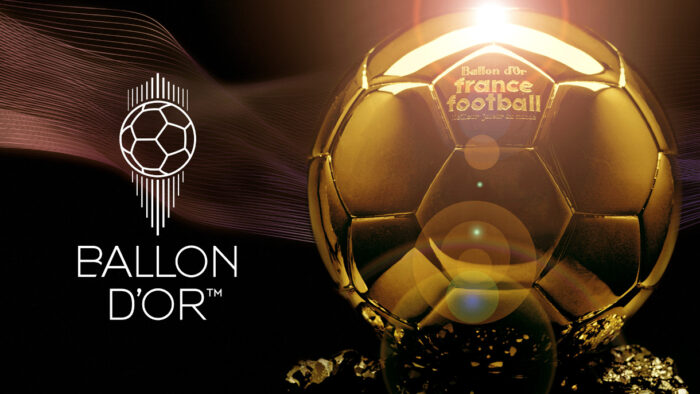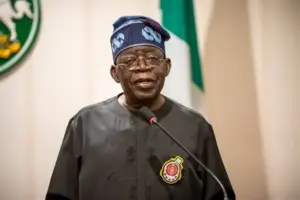The Ballon d’Or remains the most prestigious individual prize in world football. For nearly seven decades, it has celebrated players whose brilliance, consistency, and leadership have defined and elevated the global game. More than just a golden trophy, the award symbolizes footballing excellence and immortalises those who inspire generations, transforming players into legends who transcend borders and eras.
In this article, Wasiu Salami explores the history of the Ballon d’Or, its enduring significance, the patterns that have shaped its legacy, and the controversies that continue to fuel debate among fans and analysts worldwide.
Ballon d’Or: Tracing the Origin
The Ballon d’Or was founded in 1956 by France Football magazine, with English winger Sir Stanley Matthews becoming the inaugural winner. That victory marked the beginning of a tradition that would spotlight football’s finest talents. Initially, eligibility was restricted to European players playing in Europe, which excluded many South American greats such as Pelé and Diego Maradona.
In 1995, the rules expanded to allow all players at European clubs, opening the door for African icon George Weah to become the first — and still only — African winner. By 2007, the Ballon d’Or was further broadened to recognize the best player in the world, regardless of nationality or club.
Between 2010 and 2015, the award temporarily merged with FIFA’s World Player of the Year accolade to create the FIFA Ballon d’Or, before France Football reclaimed sole control in 2016, restoring its original identity while maintaining global reach.
What’s the Significance of the Award?
The Ballon d’Or is far more than a personal accolade; it is a symbol of football greatness. It acknowledges players who consistently deliver match-winning brilliance at the highest levels. Winners are etched into the game’s legacy, celebrated alongside legends who redefined the sport.
The award also carries cultural impact — fuelling passionate debates among fans, inspiring upcoming players, and highlighting the dominance of particular eras or styles of football. For clubs and nations, producing a Ballon d’Or winner translates into global prestige, underscoring their place at football’s summit.

Notable Winners in History
Throughout history, the Ballon d’Or has been awarded to icons who not only achieved individual success but also transformed the game.
In 1963, Soviet legend Lev Yashin made history as the only goalkeeper to ever win. Dutch maestro Johan Cruyff claimed three titles (1971, 1973, 1974), cementing his influence on “Total Football.” French star Michel Platini became the first player to win three in a row (1983–1985).
Read Also
In 1995, George Weah blazed a trail for Africa, becoming the first — and so far only — African recipient. More recently, two names have defined modern football: Lionel Messi, the record-holder with eight Ballon d’Or titles, and Cristiano Ronaldo, with five, together symbolizing a golden era of rivalry and excellence.
Recent Winners
The modern Ballon d’Or reflects football’s evolving dynamics and shifting stars. In 2022, French striker Karim Benzema was crowned after leading Real Madrid to Champions League glory. In 2023, Lionel Messi secured his eighth, following Argentina’s World Cup triumph in Qatar.
The spotlight shifted in 2024 to Spanish midfielder Rodri, honoured for orchestrating Manchester City’s treble-winning season. And in 2025, Ousmane Dembélé of Paris Saint-Germain ended the Messi-Ronaldo dominance, winning the award after a spectacular campaign.
The women’s Ballon d’Or, introduced in 2018, has also grown in prestige. Spanish midfielder Aitana Bonmatí has emerged as its dominant force, winning three consecutive titles (2023, 2024, 2025) and setting new standards in the women’s game.
But, is Ballon d’Or free of Controversies?
The Ballon d’Or has never been free of debate. Many argue over whether team success should outweigh individual brilliance, especially in seasons where players shine but fail to lift major trophies. The award has also been criticized for rarely recognizing defenders and goalkeepers, positions that are vital but less glamorous.
Another contentious moment came in 2020, when the award was controversially cancelled due to COVID-19 disruptions — a decision many fans and analysts believed denied deserving players their rightful recognition. These debates ensure that the Ballon d’Or remains not only prestigious but also a topic of passion and controversy every year.
Looking Ahead
The Ballon d’Or continues to evolve with new categories like the Kopa Trophy for the best young player and the Yashin Trophy for the best goalkeeper. As football becomes increasingly global, the award reflects the sport’s expanding diversity, acknowledging talents from different continents and leagues.
With the rise of emerging stars in both men’s and women’s football, the Ballon d’Or is poised to keep celebrating excellence while adapting to new trends, making it as relevant today as it was in 1956.
Conclusion
From Stanley Matthews to Ousmane Dembélé, the Ballon d’Or tells the story of football’s past and present. It represents not just individual triumphs but also eras of dominance, cultural milestones, and the unifying spirit of the world’s most loved game.
For players, winning the Ballon d’Or means carving their names into the history books. For fans, it remains the ultimate celebration of football’s greatest icons — a golden reminder of why the beautiful game continues to captivate hearts across the globe.





